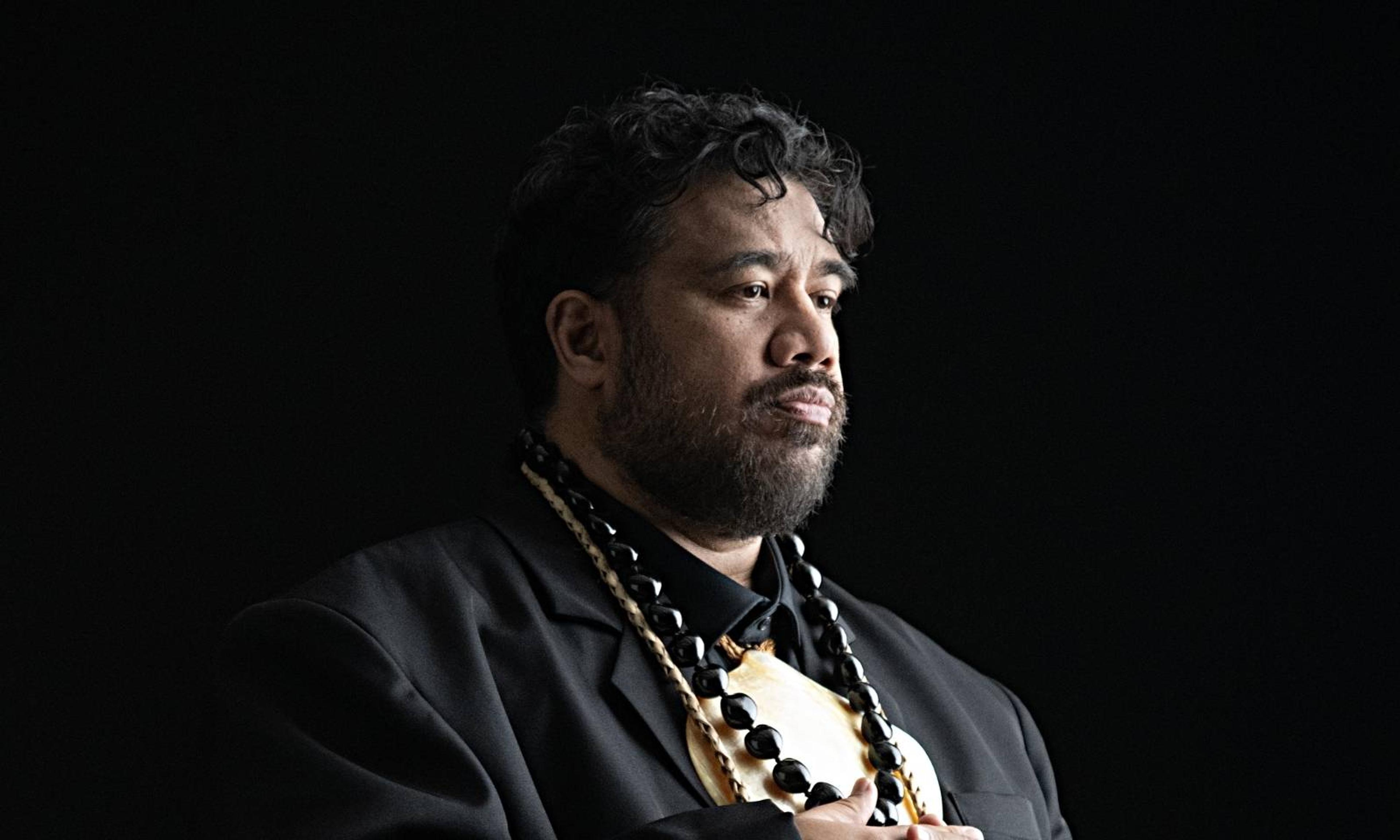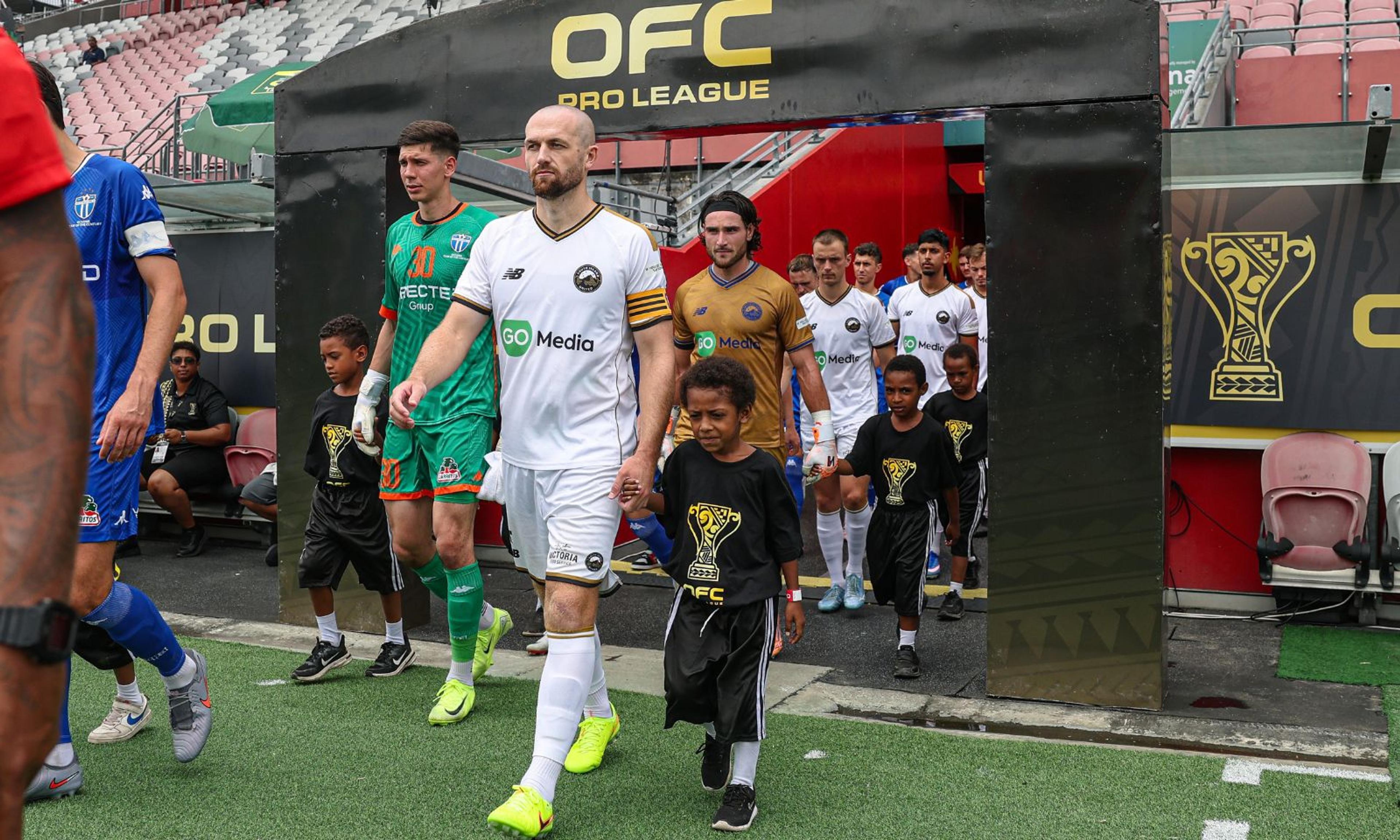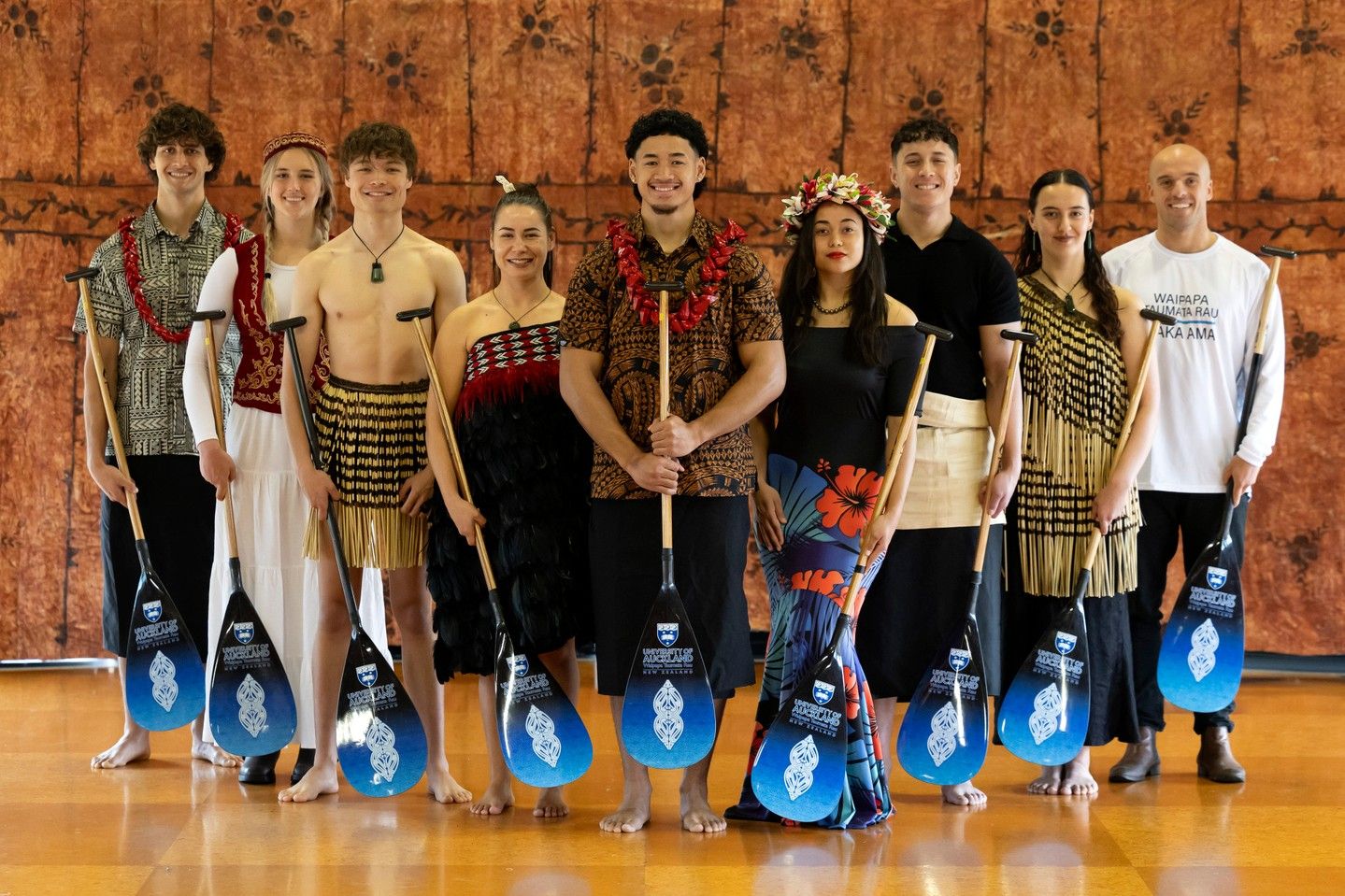

Viliami Manukia and Meilani Karika.
Photo/Ben Campbell/Facebook
From lecture halls to Hawaiian waters: Auckland paddlers shine at world races
For engineering students Viliami Manukia and Meilani Karika, competing at Hawai‘i’s Queen Liliʻuokalani Canoe Race was about ancestry, perseverance, and campus pride.


UK royal arrest sends shockwaves as Jeffrey Epstein files reference Pacific islands - reports

Second Apology: Fijian artist’s bold new film demands more for Pacific communities



UK royal arrest sends shockwaves as Jeffrey Epstein files reference Pacific islands - reports

Second Apology: Fijian artist’s bold new film demands more for Pacific communities

Pacific students from the University of Auckland Waipapa Taumata Rau (UoA) are making waves in global waters, representing both their cultures and campus in one of the world’s most prestigious outrigger canoe events, the Queen Lili’uokalani Canoe Race in Hawai’i.
Engineering students Viliami Manukia (Tonga) and Meilani Karika (Sāmoa, Cook Islands) travelled to Kailua-Kona to compete alongside their university paddling team, racing against some of the strongest crews from across the Pacific and beyond.
For Manukia, who specialises in civil engineering, this year marks his first experience paddling.
Speaking with John Pulu on PMN Tonga, Manukia says he was encouraged earlier this year by fellow paddler, Josiah Seleni, to take up the sport. It then became a way to stay active while managing the demands of his degree.
“I got into it from a mate that competed last year. It’s a good way to keep active while studying. It can be stressful, but having that place where you can just feel free to paddle and exercise, it's really good.”
Despite being new to the sport, the team achieved strong results across three races: second in the sprint, fourth in the gruelling 30km race against over 200 teams, and sixth in the 12-man 8km race.
The Queen Liliʻuokalani Canoe Race is about more than results. What began in 1972 as training for the Molokaʻi Hoe and Nā Wāhine O Ke Kai races has since grown into the world’s largest long-distance canoe racing event, drawing in more than 2500 paddlers from across the globe.
Held annually on Labor Day weekend in Kailua-Kona, the four-day event includes single-hull, double-hull, OC1 (single-person outrigger canoe), OC2 (two-person outrigger canoe), and SUP (stand-up paddling) races.
Watch Meilani Karika's full interview below.
“Competing and paddling on the waka was very humbling…having that connection that goes back to our ancestors was very good and motivated me more when competing,” Manukia tells Pulu.
No stranger tides
Meanwhile, Karika is no stranger to the Hawaiian waters. Balancing a double degree in engineering and law, she has represented the UoA at the event for three consecutive years.
Her journey began when a fellow student, Manamea Koteka, rallied engineering students into forming a team.
Winning the university’s Great Waka Ama race secured their place to compete internationally - with all costs covered by the university.
Watch Viliami Manukia's full interview below.
While Karika is proud of her team’s efforts in Hawai’i, the highlight for her is the people and the atmosphere.
“It's a fun race when you meet the teams, they want to win, but they’re also just very nice people,” she says in an interview with Susnation Seta on 531pi’s Pacific Days.
“We were versing them in the next race, but they were still teaching us how to use the bailers when we flip the boat back over.”
Juggling study and sport
Both Karika and Manukia admit it’s a challenge balancing early morning training with full-time study. Karika describes waking up at 6am for paddling before racing to lectures.
Karika says the key was discipline, structure, camaraderie, and the support of the team managers.
“Obviously, as you go through the years of uni, it does get harder. But I also had to be able to wake up in the morning,” she says.

The 2025 waka ama team (from L-R) Johnny Mayerhofler, Linda Rehm, Pikitangaārangi Ratapu, Savannah Brown, Josiah Seleni, Meilani Karika, Viliami Manukia, Kya Hurihanganui, Billy Bowman. Photo/Ben Campbell/Facebook
“But then if you keep building a schedule, you're like, OK, training in the morning, lectures, study, assignments, training in the next day, lectures, studies, assignments. It does get difficult in your third year…but if you have the right people around you, it does seem to fit in.”
Manukia was grateful to have had education-focused leaders.
“Obviously, being a uni student, school comes first. So our coach and our managers were happy to let us focus on school first.”
Beyond the horizon
With the constant backing of their proud families, both students see paddling as a space where cultural roots and personal growth collide.
“Time management is very essential,” Karika says. “But it becomes a happy memory.”
For Manukia, the shores of Tonga are calling his name. “Yes, I am happy to continue with this journey. Hearing that Tonga also has a team, I’ll be looking into competing in that area as well.”